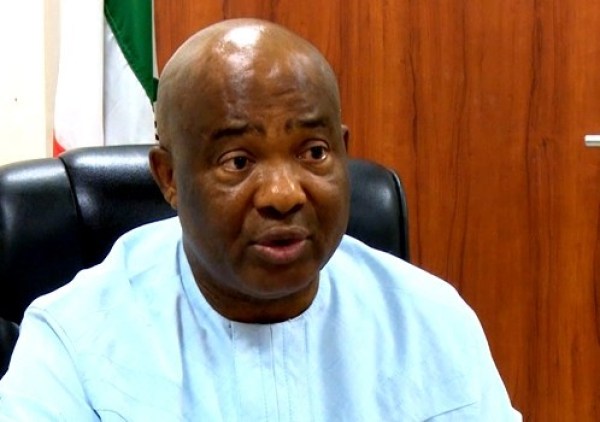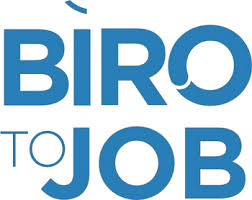Uzodinma and Hope of Prosperous Imo

By Collins Ughalaa
Since the return to democracy in Nigeria in 1999, it has become ritualistic for governors to address their people. The people for their part expect their governor to address them from time to time and keep them abreast of the goings on in the government, especially how government policies and programmes will benefit them. Apart from seeking the support of the people in several facets, a governor unfolds his programmes to the people through the platform of state-wide address, encourage citizens participation and openness in the running of the government.
Consequently, on Tuesday, January 21, 2020, exactly one week after the Supreme Court declared him the Governor of Imo State, Governor Hope Uzodinma addressed the people of the state via a state-wide radio broadcast. Imo people needed to know what was in the bag for them following the Supreme Court verdict and the state-wide address has been able to connect the people and the government. Above that, it has been able to galvanize them towards the many opportunities open to them in the new administration
For a new administration, economic, social and political activities seem to be slow until the governor speaks to the people and shows them the direction his government would be going. Of course, until the governor speaks and exposes his direction, investors may seem to be waiting on the lines and business activities may seem to be on a snail speed. This is why Imo people applaud Governor Hope Uzodinma for opening up, as it were, to them and others far away, his programmes and policies, and how they will impact on the people.
Apart from coming timely, the Governor Hope Uzodinma’s maiden address comes with candour, originality and new opportunities. It presents practical solutions to the myriad of challenges confronting the state. With the breakdown of governance structures and corruption in government offices over the years, the new governor presents a paradigm shift, creates a new platform – a New Imo State where the “common will of the people” is cardinal. The Governor’s New Imo State is that of shared prosperity, where “equity, justice, freedom, and the rule of law prevail over impunity and executive recklessness”.
Imo State has been adjudged a very poor state since 2011, with the terrifying poverty rate of 19%. This reality reinforces the need to urgently address the menace of poverty in the state and usher in prosperity. With impunity and executive recklessness being the order of the day in those years, there is little wonder why there was poverty in the state. With no functional governance structures and no sector of the economy working, poverty was therefore expected. But that was the old Imo.
The message of shared prosperity as encapsulated in the Governor’s address exposes the core values of social justice, freedom and happiness, upon which the government revolves. This philosophy of spreading happiness and prosperity is in tandem with the personal philosophy of the Governor. It is also at the core of the provisions of Chapter 2 of the 1999 Constitution of Nigeria as amended. The Constitution in Chapter 2, Section 16 (b) provides that the government will control the economy “in such manner as to secure the maximum welfare, freedom and happiness of every citizen on the basis of social justice and equality of status and opportunity.” In paragraph 14 (2b), the Constitution expressly provides that “the security and welfare of the people shall be the primary purpose of government”.
Poverty is not a toy children play with. No citizen is happy when he suffers social justice. No one is happy when his welfare is not pleasant. No one is happy when opportunities elude him as a result of religion, gender, clan, age or social status. The strife among the people and the unhealthy competition among them derive largely from lack, or loss, of opportunities, especially the failure of government to provide and distribute such opportunities without clannish considerations. The Governor’s prosperous New Imo therefore seeks to end the menace of poverty and usher in prosperity for everyone irrespective of age, clan, gender and social status. To have a prosperous Imo, it is laudable that the government pays no heed to the divisive tendencies of clannishness and zoning. Instead, the paradigm shift, the Governor’s new narrative of recognizing and respecting individuals “as an Imo person” instead of elevating clannish considerations as state policy, is the right way out for the people. And if we must achieve a prosperous Imo as envisioned by the Governor, consideration of creed, gender and one’s place of origin become anathema. They become besetting sins. And we must do away with them.
It is commendable that the new government has shown the commitment towards addressing the needs of the people of the state and ensure that the welfare and security of the people is paramount. His rejection of clannish wiring in the operations of the state and the people’s relationship amongst themselves overtime in his bid to mobilize the people towards achieving prosperity is therefore a good foundation. This is why it is appreciable that the government is creating “our shared prosperity”, and the distribution of government opportunities and services will not be influenced by mundane attachments such as one’s place of origin.
We have good reasons to believe in the shared prosperity vision of the Governor. In the past, and as noted by the Governor, Imo State witnessed “a slow, steady but devastating loss of the core values that had defined our dear, adorable Imo State. In place of those cherished ideals, an insipid culture of lawlessness and neo-feudalism had crept into the body fabric of our state. The time is now to take action and free our state and her people from the stranglehold of the false religion of executive lawlessness, exclusive governance and total disregard to due process”.
For instance, Neo-feudalism or new-feudalism, a theory of modern-day resurgence of policies of governance, economy, and public life reminiscent of those in many feudal societies, such as unequal rights and legal protections for common people and for nobility, enthrones class stratification and inhibits prosperity. As practiced between the 9th and 15th centuries, feudalism, broadly speaking, was a way of structuring society around relationships derived from the holding of land in exchange for service or labour. It permits nepotism, favouritism as against social justice, or merit and equal rights. These are the things we had suffered over the years, where government patronage was influenced by1 relationships.
The Governor said it is time to end all forms of 1new-feudalism in the state. He said it is time to enthrone social justice and equal rights and opportunities, banish clannish considerations and unshackle the people. “The New Imo State offers a new paradigm to redress the ripples of those years of maladministration, inexperience and outright inefficiency in public administration”, assures the Governor. He further assures his commitment to protect the fundamental rights of the people, such as the right to own property and doing business, etc. The news prosperous Imo thrives beyond rhetorics. It is built not on emotional outbursts but on realistic commitment to serve the people.
Says the Governor: “Our New Imo State will enshrine a new culture of shared prosperity in which the commonwealth of the people is made available for the good of all. Above all, it is a new Imo State that will ensure good governance, prosperity, rule of law and equity. The Mission cuts across party lines, religious leaning and intra-ethnic divides. From now on, it will no longer be governance as usual, but governance of the people, by the people and for the people, without discrimination against anyone”. Inspiring.
In ensuring a shared prosperous Imo, the Governor would evolve a new trajectory of efficiency in service delivery. This makes the Governor’s 3Rs of Rehabilitation, Reconstruction and Recovery of key economic and political institutions imperative, because without an efficient and transparent system of service delivery, the New Prosperous Imo would be a mirage. For example, to create prosperity, the Governor seeks to address the problem of low disposal income among the people by enhancing the capacity of the people through the creation of opportunities and programmes that would enhance their earnings. Without an efficient and transparent service delivery system, the aims will be defeated.
To enhance the disposal income capacity of the people, the Governor will, by deliberate actions, ensure the overhaul of the institutions of the bureaucracy for optimal efficiency and Service delivery, so as to guarantee the prompt payment of salaries, pensions and other statutory obligations. The potential to derail government programmes and policies in an inefficient system cannot be overemphasized. Therefore, the government needs an efficient and transparent system of service delivery to run programmes in Agriculture, Education, Health, Security and Tourism. Agriculture, on its own, can transform the people and enhance their income earning capacity. Apart from the fact that Imo people enjoy the comparative advantage in Agriculture, especially in cassava, Agriculture is a low-hanging fruit a government that seeks to create prosperity can harness. Cassava production alone, experience has shown, has the capacity to engage the people all through its value chain, thereby eradicating the challenge of low income among the people. This is the reason also to applaud the Governor’s willingness to make Agriculture a major policy thrust.
Of course, Health, Education and Security are crucial to achieve the Prosperous Imo envisaged by the Governor. Addressing the low income earning capacity of the people by opening up opportunities that will make them earn more will not only make them self-reliant, the Internally Generated Revenue of the state will witness a boom. Further, with their enhanced income, the people will be able to afford healthcare services, education, food, shelter, etc, and in the long run free up a lot of funds for the government to channel into areas they cannot delve into as individuals, such as providing the needed infrastructures and social services. The government will also have the time to focus on readdressing our value system. If anything, the era of dependency on crime, especially kidnapping, child trafficking, armed robbery and internet fraud as means of earning disposable income will pass.
In the end, both the government and the governed will be happy.
Collins Ughalaa could be reached via email: ughalaacollins@gmail.com, or via telephone: 07066222944.








